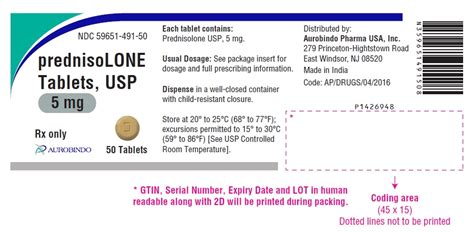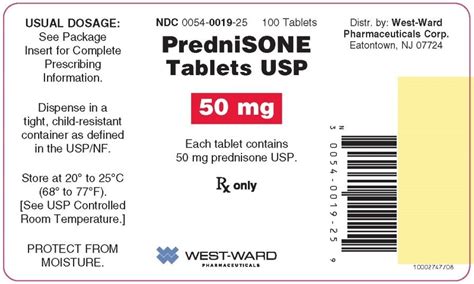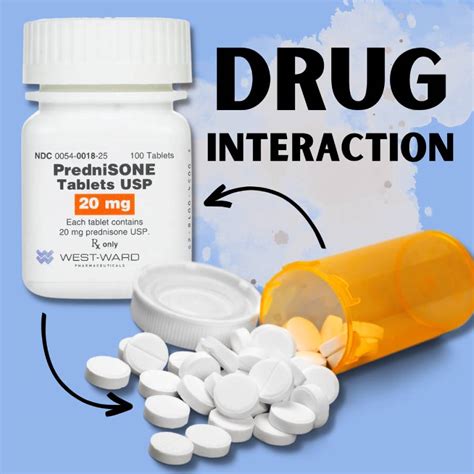Intro
Discover if prednisone is a steroid, its uses, and side effects. Learn about corticosteroids, steroid types, and prednisones role in treating inflammation and autoimmune diseases.
Prednisone is a synthetic corticosteroid that is commonly used to treat a wide range of health conditions, including inflammatory diseases, immune system disorders, and hormone imbalances. As a steroid, prednisone works by mimicking the effects of the hormone cortisol, which is produced naturally by the adrenal gland. Cortisol plays a crucial role in regulating the body's response to stress, inflammation, and infection, and prednisone helps to supplement this natural response when it is impaired.
The importance of understanding prednisone and its effects cannot be overstated, as it is a widely prescribed medication that can have significant benefits and risks. By learning more about how prednisone works, its potential benefits and side effects, and how it is used to treat various health conditions, individuals can better navigate their treatment options and make informed decisions about their health. Whether you are considering taking prednisone for the first time or have been taking it for an extended period, it is essential to have a thorough understanding of this medication and its potential impacts on your body.
Prednisone is a type of glucocorticoid, which is a class of steroid hormones that are produced by the adrenal gland. Glucocorticoids play a vital role in regulating the body's metabolism, immune response, and inflammation, and prednisone is used to supplement these natural processes when they are disrupted. By taking prednisone, individuals can help to reduce inflammation, suppress the immune system, and regulate their metabolism, which can be beneficial for treating a range of health conditions, including asthma, rheumatoid arthritis, and lupus.
How Does Prednisone Work?

Benefits of Prednisone
The benefits of prednisone are numerous and well-documented. Some of the most significant advantages of taking prednisone include: * Reduced inflammation: Prednisone is highly effective at reducing inflammation, which can be beneficial for treating conditions such as asthma, rheumatoid arthritis, and lupus. * Immune system suppression: Prednisone can help to suppress the immune system, which can be beneficial for treating autoimmune disorders, such as multiple sclerosis and rheumatoid arthritis. * Metabolic regulation: Prednisone can help to regulate metabolism, which can be beneficial for treating conditions such as diabetes and obesity. * Improved symptoms: Prednisone can help to improve symptoms such as pain, swelling, and fatigue, which can be beneficial for individuals with chronic health conditions.Side Effects of Prednisone

Risks and Complications
In addition to its side effects, prednisone can also have significant risks and complications. Some of the most serious risks associated with prednisone include: * Adrenal insufficiency: Long-term use of prednisone can lead to adrenal insufficiency, which is a condition in which the adrenal gland does not produce enough cortisol. * Osteoporosis: Prednisone can increase the risk of osteoporosis, particularly in older adults. * Diabetes: Prednisone can increase the risk of diabetes, particularly in individuals who are already at risk. * Infections: Prednisone can increase the risk of infections, particularly in individuals with weakened immune systems.Uses of Prednisone

Dosage and Administration
The dosage and administration of prednisone can vary depending on the individual and the condition being treated. Some common dosages of prednisone include: * 5-10 mg per day for mild conditions * 10-20 mg per day for moderate conditions * 20-50 mg per day for severe conditions * 50-100 mg per day for life-threatening conditionsInteractions and Contraindications

Precautions and Warnings
Prednisone can have significant precautions and warnings, including: * Pregnancy and breastfeeding: Prednisone should be used with caution in pregnant and breastfeeding women, as it can pass into the fetus or baby. * Children: Prednisone should be used with caution in children, as it can affect growth and development. * Older adults: Prednisone should be used with caution in older adults, as it can increase the risk of osteoporosis and other age-related health problems.What is prednisone used for?
+Prednisone is used to treat a wide range of health conditions, including inflammatory diseases, immune system disorders, and hormone imbalances.
What are the side effects of prednisone?
+The side effects of prednisone can include weight gain, mood changes, sleep disturbances, increased appetite, and skin changes.
How long does it take for prednisone to work?
+The time it takes for prednisone to work can vary depending on the individual and the condition being treated. Some people may experience benefits within a few days, while others may take several weeks or months to respond.
